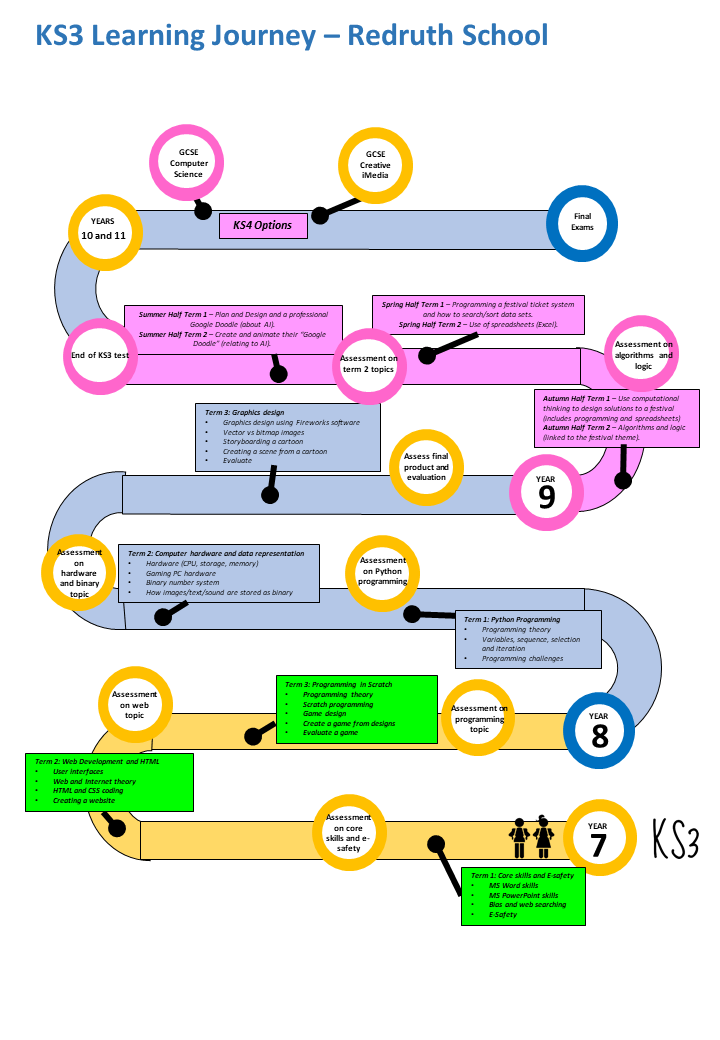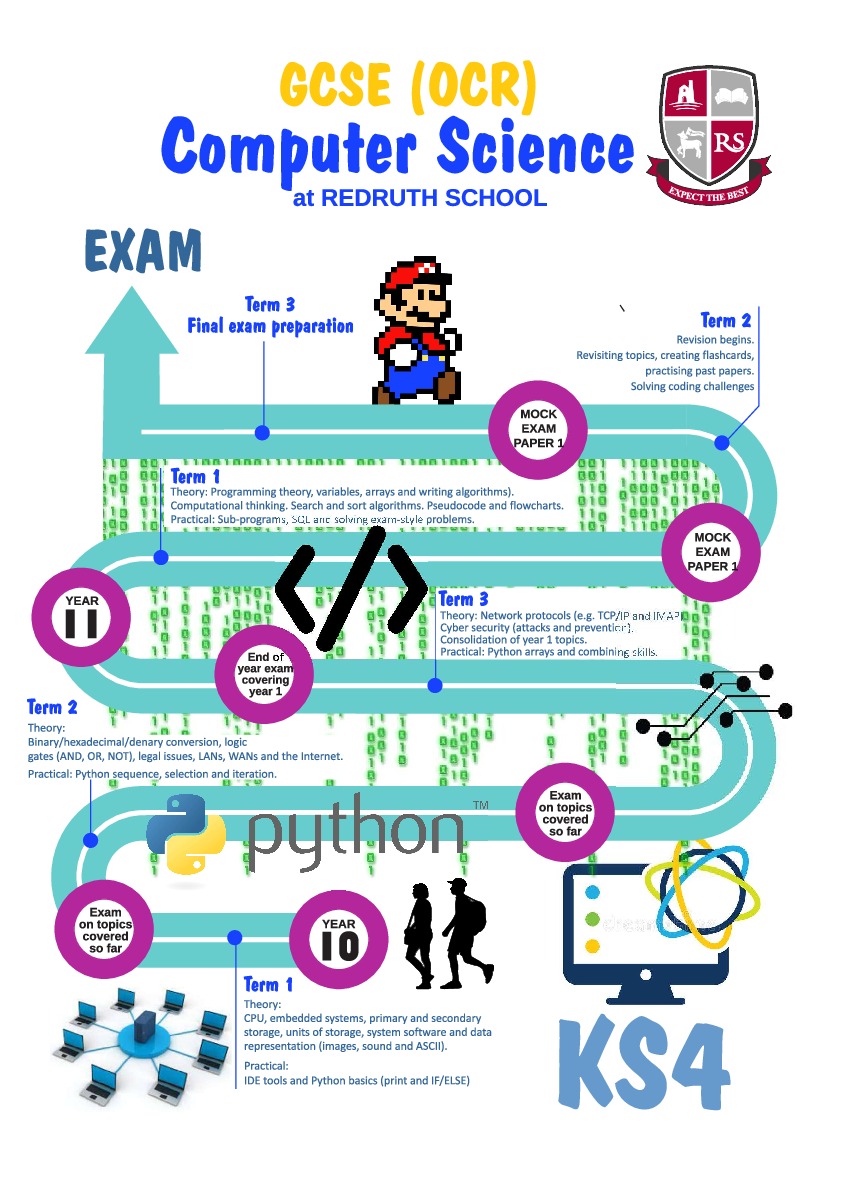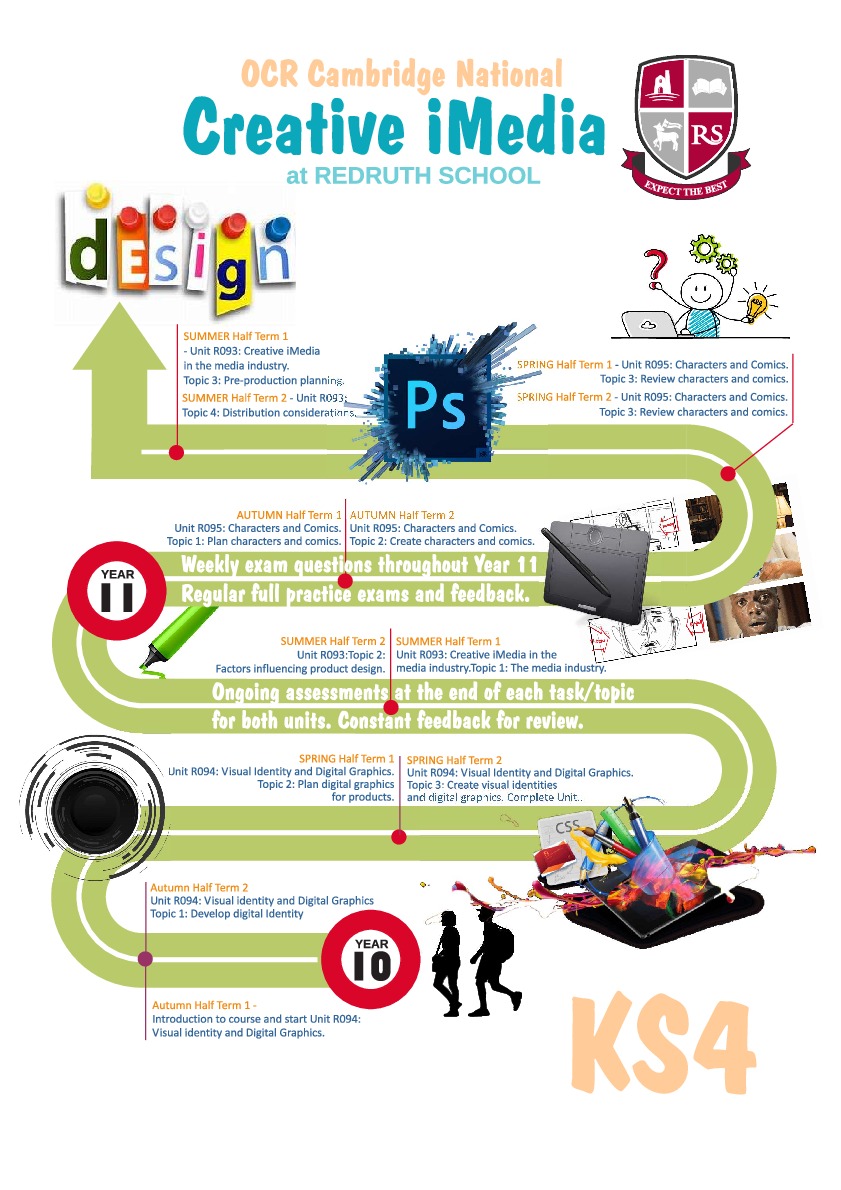- Home
- Students
- Subject Information
- Computing
- facebookShare this page on Facebook
- twitterTweet this page
- pinterestPin this page
Computing
Head of Subject: Mr Adam Rogers
arogers@redruth.cornwall.sch.uk
Computing curriculum intent
To enable students to develop their knowledge and skills in computer science, IT and digital literacy through a varied and engaging curriculum and extra-curricular opportunities, including links with local employers. We strive to promote confidence in all abilities and increase their awareness of computing and IT-related careers, both in Cornwall and beyond.


What does the Key Stage 3 computing curriculum look like?
At Key Stage 3 students cover the three core strands of computing:
Digital literacy:
Use of a computer, management of files, use of the cloud and key software that they will encounter in education and careers. Digital literacy also includes e-safety and digital responsibility, which is more important now than ever in a rapidly changing online world.
Computer science:
Computational thinking and problem solving which includes simplifying problems, breaking them down into manageable chunks and writing programs in both Scratch and Python to solve these problems.
Learning how computers store data as binary, including how text, images and sound are stored. In addition, students learn about key algorithms and hardware.
Information technology: Students learn how to use software creatively for digital graphics design and animation.
The core strands of digital literacy, computer science and IT equip students with skills for life and the workplace. Each of the core strands is revisited each year and built on toward key stage 4 where students may opt to continue at GCSE level.
Computer Science Key Stage 3 Curriculum
What does the Key Stage 4 computing curriculum look like?
At Key Stage 4 students can opt for GCSE Computer Science.
GCSE Computer Science is aimed at equipping students with the skills and knowledge to thrive in modern life. Computer science is particularly useful for those students wishing to pursue STEM careers, but also gives students the skills they need for future careers in an ever-changing workplace.
Topics include:
-
Systems architecture
-
Memory and storage
-
Computer networks, connections and protocols
-
Network security
-
Systems software
-
Ethical, legal, cultural and environmental impacts of digital technology
-
Algorithms
-
Programming fundamentals
-
Producing robust programs
-
Boolean logic
-
Programming languages and Integrated Development Environments
How can you support computing learning at home?
The key area of computing that students tend to need additional support with is programming. Programming is a skill that, like maths, develops gradually over time and needs constant practise to get good at.
In Year 7, Scratch programming can really help to build the key skills and understanding of logic. Following the tutorials on the Scratch website is a good way to get started. Students can create their own accounts and work on projects.
In years 8 and beyond, the Python programming language is used. The series of YouTube videos called "Kidscancode Learning to code with Python" are great for getting started.
At GCSE level, the time2code.today website is a great resource for programming. On the theory side, the CraigNDave YouTube channel is great for GCSE level.
Students
- Careers
- Combined Cadet Force
- Duke of Edinburgh's Award
- Extra-Curricular Clubs, Trips & Activities
- Future4 curriculum
- Learning Resource Centre (Library)
- More Able Provision
- Our House System
- Pastoral
- Student Portal & Class Charts
- Subject Information
- Student Voice
- Student Wellbeing
- Work Experience



